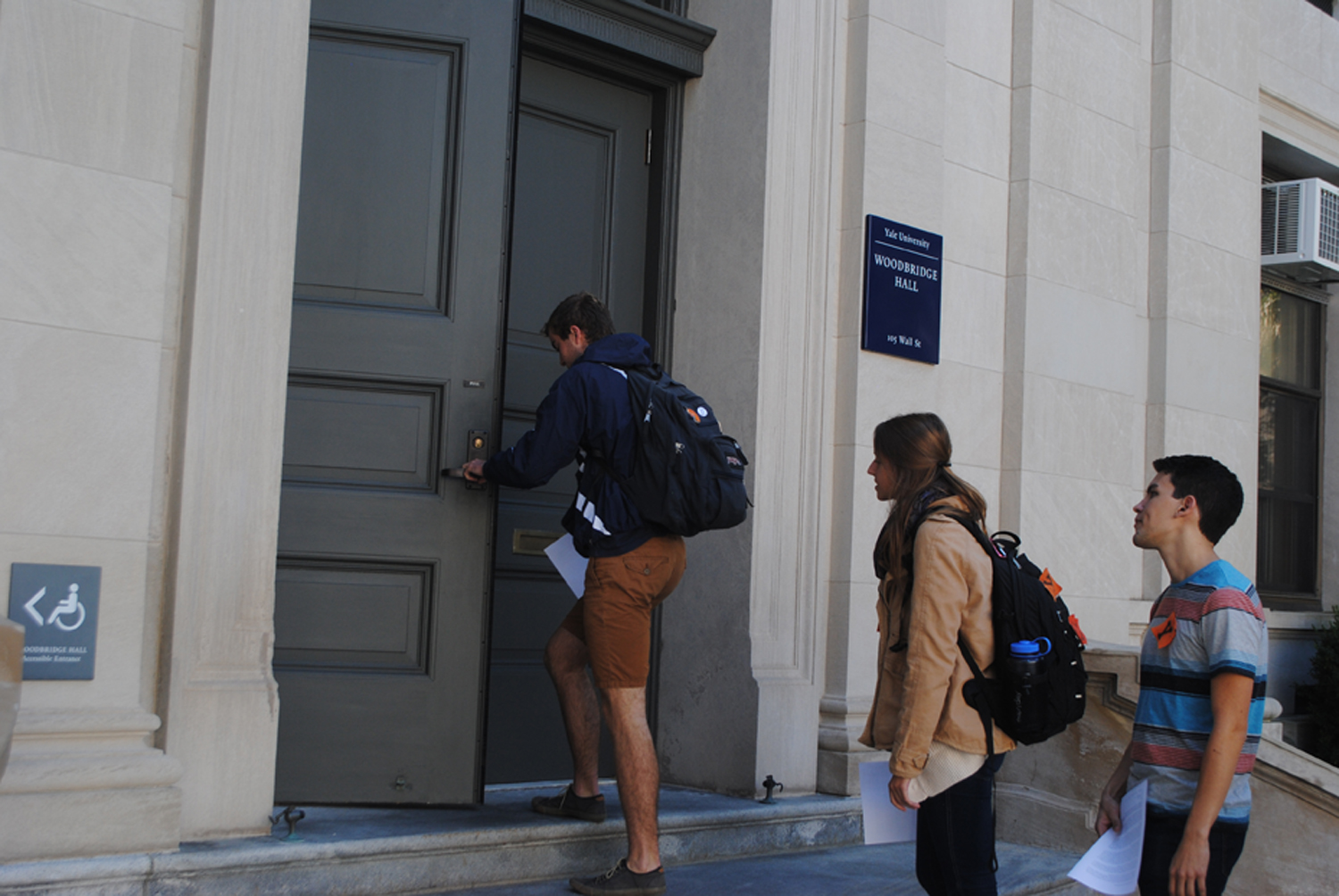Student Advisory Council added to presidential search after widespread student outcry
The Student Advisory Council is the first of its kind in a Yale presidential search process and comes after advocacy by the YCC, GPSS and the GSA.

Yale Daily News
The Presidential Search Committee announced on Monday the creation of a Student Advisory Council to inform the search process for Yale’s next president.
The council will be composed of 12 students — four undergraduate, four graduate and four from the professional schools. Members of the council will be tasked with gathering information from across the University and then sharing that information with members of the search committee.
The council is the result of advocacy by the Yale College Council, the Graduate and Professional Student Senate and the Graduate Student Assembly, which together raised the issue with members of the Yale Corporation and the Presidential Search Committee. The presidents of these three student groups will serve as advisors and members ex officio to the council.
“The Student Advisory Council will share the information it gathers with members of the search committee through meetings and written reports, ” Joshua Bekenstein ’80 wrote on behalf of the search committee in an email to the University. “We look forward to keeping in touch with [Yale community members] throughout the search process and are excited about the work ahead of us.”
YCC president Julian Suh-Toma ’25 wrote to the News in an email that the YCC plans to release more information about the nomination and appointment process for the new council but noted that all undergraduate students will be eligible to nominate themselves to serve on the committee.
Suh-Toma added that members of the Council will primarily be soliciting input from community members, “not provid[ing] their personal opinions.”
He also wrote that the YCC, GPSS and GSA will move forward with different processes for selecting students to the advisory council to best suit the “composition and needs” of each student group.
“This is a historic and unprecedented win, as it is the first time Yale has ever had a formal student advisory council in a presidential search,” Suh-Toma wrote to the News. “We’re grateful to the partnership that has formed between all of Yale’s elected bodies and leadership in working to make this happen.”
GPSS president Chrishan Fernando GRD ’25 told the News that student leaders, including himself, all had a similar “initial visceral response” after University President Peter Salovey announced he would be stepping down since no formal methods of student engagement were announced in the search for his successor.
He said that recent conversations with members of the Board of Trustees demonstrated that the group is “definitely open to student feedback.”
Fernando also echoed Suh-Toma’s emphasis on the historic significance of the council’s creation.
After Salovey’s predecessor, Richard Levin, announced that he would be stepping down in 2013, then-YCC president Brandon Levin ’14 LAW ’21 was selected by then-senior trustee of the Corporation Edward P. Bass ’68 to serve as a “conduit” between students and the search committee, according to a 2014 editorial that Brandon Levin wrote in 2014 about the search.
Before 2013, the University had never solicited formal student input in its presidential search processes. Faculty members were not included in the University’s search process until the 1993 presidential search, which resulted in Levin’s appointment.
“Thus far, our focus has been on making sure that we have an avenue for student engagement and student input on the search process,” Fernando said. “[The council] is something we’re all very excited for.”
In an email to the News, Graduate Student Assembly president Christopher Lindsay GRD ’26 wrote that the four members from the Graduate School of Arts and Sciences will solicit volunteers from the general student body and elect one representative from each of the school’s divisions, including from the Humanities, Social Sciences, Biological Sciences and Physical Sciences and Engineering.
He also wrote that the Corporation was supportive of finding mechanisms of incorporating student input and that the Council was formed after discussions with Suh-Toma, Fernando and members of the Board of Trustees and the Search Committee.
“Divisional representation is very important since we want the next president to value all the different types of research and teaching done at Yale,” Lindsay wrote. “The board members on the search committee were very keen to incorporate student perspectives to the search from the beginning.”
The Presidential Search Committee appointed four faculty members to its ranks on Sept. 27. The announcement came hours before the first of the Corporation’s listening sessions to gather input on the search process from students, faculty and staff, which were announced the day before on Sept. 26.
Salovey plans to step down from his post on June 30.







